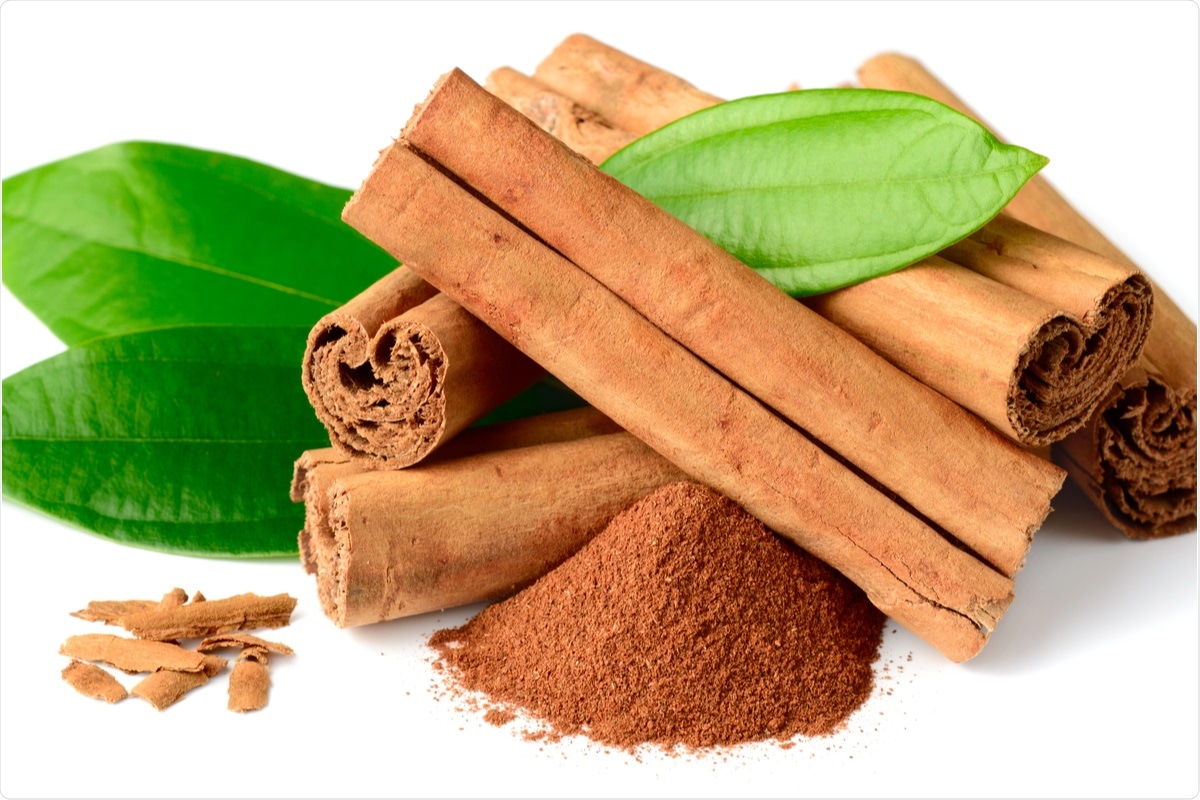Since the coronavirus disease 2019 (COVID-19) pandemic’s first emergence, limited progress has been made in developing effective and safe antivirals to prevent and treat infection by the pathogen responsible, the severe acute respiratory syndrome coronavirus 2 (SARS-CoV-2). A new study recently appeared in the journal Frontiers in Plant Science that describes the potential for two common plant products to make a difference in the management of severe COVID-19.

In severe and critical COVID-19 patients, a so-called cytokine storm has been identified, characterized by exaggerated inflammation and acute respiratory distress syndrome (ARDS), often with multisystem damage and organ failure.
The inflammatory response is due to the production of high levels of reactive oxygen and nitrogen species (ROS/RNS) that establish the vicious cycle of further inflammation. The inflammatory damage that can be done to the lung alveoli, the endothelium, and the ingrowth of blood vessels has become clear.
This type of inflammation centered on the blood vessels is not confined to the damaged lungs in COVID-19, but also involves sustained inflammatory changes in the liver, brain, gut and heart, among other organs. Thus, the ability to prevent or restrict the cytokine storm and reduce the oxidative stress on these organs would be useful in preventing death and could even, perhaps, reduce the viral load by suppressing viral replication.
One such option has been dexamethasone, which reduces mortality by 30% in patients on ventilators.
The current study is a follow-up of a prior screen that involved 99 herbal extracts thought to be anti-inflammatory. It zooms in on the top two, namely, Hop (Humulus lupulus, cones) and Ceylon cinnamon (Cinnamomum verum alias C. zeylanicum, bark) extracts.
These were found to bring about steep declines in activation of a key regulator of pro-inflammatory cytokines, namely, transcription factor NF-κB (nuclear factor kappa-light-chain-enhancer of activated B cells).
Hops are seed cones containing pharmacological compounds like humulone, lupulone and xanthohumol. The extracts of these cones seem to have antiviral effects. Humulone may suppress the replication of the respiratory syncytial virus in cell culture, for instance. Xanthohumol is synergistic with interferon-alpha against the bovine viral diarrhea virus (BVDV).
Humulone is also synergistic with some antibiotics; has anti-inflammatory effects via the suppression of cyclo-oxygenase expression following exposure to tumor necrosis factor (TNF); and can inhibit Toll-like receptor 4 (TLR4) and NF-κB signaling.
Xanthohumol is anti-inflammatory following viral or lipopolysaccharide (LPS) challenge, downregulating interleukins and TNF, and could also reduce oxidative DNA damage.
Hop extract is also useful in alleviating ROS and RNS, reducing nitric oxide synthase (nNOS) activity within neurons, and lipid oxidation. It also activates the important regulatory molecule and transcription factor nuclear factor erythroid 2-related factor 2 (NRF2).
Anti-thrombotic and anti-fibrogenic effects have also been reported in animal studies and in vitro, respectively.
Cinnamon is a spice with Chinese and Ceylonian varieties. The latter is discussed here. Like hops extract, this too has anti-inflammatory activity, antagonizing TLR2 and TLR4 activation and inducing NRF2. It also inhibits angiogenesis.
What are the implications?
The researchers found that both hops and cinnamon extracts have many anti-inflammatory functions, including reducing the release of pro-inflammatory cytokines and preventing angiogenesis, blood clotting, and endothelial inflammation within blood vessels.
Their activity in triggering NRF2 expression should also reduce the ROS and RNS generation from the high level typical of inflammation. Thus, both these extracts could reduce the complications of severe COVID-19.
Testing both extracts, either alone or in combination, and particularly as a supplemental treatment to other medications, might be a promising therapeutic approach.”
Since dexamethasone is showing promising results, but has potentially serious adverse effects such as arteriosclerosis, supplementation with these extracts may prevent complications of dexamethasone therapy as well.
Patients on mechanical ventilation often have pneumonia, and hops extract could help counter this as well.
Further studies will show if these extracts are useful in protecting against SARS-CoV-2. Their common use or derivation from substances used in food indicates their safety, unless there is hypersensitivity to either of them or alcohol intolerance, which prevents the use of alcoholic extracts.
They can also be produced on a large scale and are readily available, thus proving their benefits in low-resource settings.
However, it should be noted that the individual components in each of the herbal extracts probably have a synergistic effect, making them superior to the pure substances.
More convenient formulations such as capsules or water extracts may be used to allow easier administration. The dosage remains to be determined once the current findings are confirmed, drawing on earlier studies that used these compounds to treat other inflammatory conditions.
- Lucas, K. et al. (2021). Cinnamon and Hop Extracts as Potential Immunomodulators for Severe COVID-19 Cases. Frontiers in Plant Science. https://doi.org/10.3389/fpls.2021.589783. https://www.frontiersin.org/articles/10.3389/fpls.2021.589783/full
Posted in: Medical Research News | Disease/Infection News | Healthcare News
Tags: Acute Respiratory Distress Syndrome, Alcohol, Angiogenesis, Anti-Inflammatory, Antiviral Drug, Arteriosclerosis, Blood, Blood Vessels, Brain, Cell, Cell Culture, Cinnamon, Coronavirus, Coronavirus Disease COVID-19, Cytokine, Cytokines, Dexamethasone, Diarrhea, DNA, DNA Damage, Heart, Hops, Hypersensitivity, Immune Response, in vitro, Inflammation, Liver, Lungs, Molecule, Mortality, Necrosis, Neurons, Nitric Oxide, Oxidative Stress, Oxygen, Pandemic, Pathogen, Pneumonia, Receptor, Respiratory, SARS, SARS-CoV-2, Severe Acute Respiratory, Severe Acute Respiratory Syndrome, Spice, Stress, Syndrome, Transcription, Tumor, Virus

Written by
Dr. Liji Thomas
Dr. Liji Thomas is an OB-GYN, who graduated from the Government Medical College, University of Calicut, Kerala, in 2001. Liji practiced as a full-time consultant in obstetrics/gynecology in a private hospital for a few years following her graduation. She has counseled hundreds of patients facing issues from pregnancy-related problems and infertility, and has been in charge of over 2,000 deliveries, striving always to achieve a normal delivery rather than operative.
Source: Read Full Article
